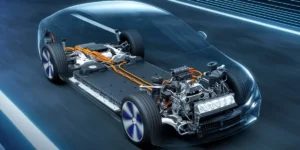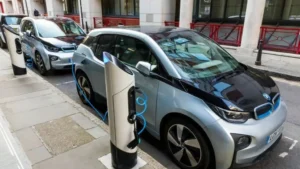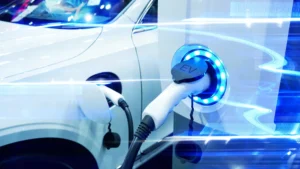Due to global warming subsequences, engineers around the world decided to find solution for decrease the co2 rising rate and help to save our fuel for other usages. After researching for two decades eventually they designed innovative engines which work with electrical power. In these engines you just carry your chargers with yourself and nothing. It was strange and weird for first day to people; they can’t just accept something new entered to the manufacturing industries. From their aspects it was just a researching project that never could be replace to cars which work with fuels.
However, you can see how these cars spread through the world, at least in countries who care about environment. As matter of fact using electric vehicles (ev) is profitable both for people and governments. People receive lower noises in town, less emissions and pollutions which entered in atmosphere and their lungs. In some cases, electric cars are much cheaper than oil engine cars. From other side governments could be able to saving their oils or selling them to other countries.
Geologists believe these kinds of cars are ultimate generation for beneficial supporter of the earth. They said electric vehicle industries boost human living critics in this planet. Nonetheless still there so many factors remain which impact on global warming and generate so much emissions. But it is acceptable for beginning besides that there are plenty other benefits for electric cars such as no exhaust emissions, minimum carbon footprint. Electric vehicles also have low heat losing (amount of heat that wasted in engine due to several factors) thus that need for cooling system will be reduce.
Until 2023,14 million plugged in electric cars were sold around the world. Actually from 14 % in 2021 reach to the 18 % in 2023 and it’s good news for human society. China is big and greatest seller in the world after that we have America with tesla motors and Europe with several car factory.
How do electric vehicles work?
For the beginning we must say these cars have different essence engine than elder generations. First electric motor instead of internal combustion engine. The battery in electric cars must plugged in wall outlet or special charging equipment. Due to this difference, many other parts are completely changed or deleted from this version like fuel pomp, fuel line or fuel tank and exhaust part.
The Rise of Electric Cars: Transforming the Future of Transportation

Electrical vehicles are highly important in the current global dialogue about climate change, energy sustainability, and even the future of transportation. Society is a route to a greener future whereby the use of an electric car is increasingly perceived as a way to reduce carbon emissions, lessen reliance on fossil fuels, and contribute to creating a cleaner environment.
The Role of EVs in Reducing Carbon Footprints
Among all global issues that need to be solved, climate change holds the record. The transport sector is by large one of the biggest polluters due to the dependency on fossil fuel-powered vehicles. Transitioning to electric cars will greatly reduce those emissions.

Basically, electric vehicles do not have tailpipe emissions themselves; one has to look into the big picture. The emissions that an EV puts out depend on what kind of electric source is feeding in. In states with renewable energy-solar, wind, or hydro-power-grid, its environmental advantages are much deeper. On the other hand, in places mainly covered with coal-based sources, or for that matter by some other non-renewable ones, the benefit is scant.
That is very much the reason such a transition is as important, if not even more so, with respect to that of EVs. A full renewable grid teamed with electric transport would have such a tremendous difference in terms of global carbon dioxide emissions.
EVs and Renewable Energy Integration
For mass adoption, an electric car has potential implications on the general renewable energy system. The V2G technology allows electric vehicles to actively feed power back into the grid when needed, for example, during peak consumption or under conditions of outage situations; EVs could provide part of the households with power in order to assist in the total stabilization of the grid.
That will balance the variability of renewable energy sources, like solar and wind, which intrinsically come in intermittent supply. When we can store surplus energy in EVs at times of high renewable generation-that is, during the day when the sun is out-we are able to tap into that energy during periods of high demand or low renewable generation.
Innovation in Charging Technology
The speed and convenience of charging an electric vehicle are major factors influencing people’s decision to make the switch. We’re already seeing rapid improvements in charging technology. The development of ultra-fast charging stations that can charge an EV to 80% in just 20-30 minutes is one example. As more of these stations become available, the issue of range anxiety will likely lessen, and long road trips will become much more convenient.
Battery-swapping stations, a concept already in use in some parts of the world, are also gaining attention. In these stations, drivers can simply swap out their depleted battery for a fully charged one in minutes, eliminating the need for waiting at charging points altogether. Although this concept has its own challenges, such as standardizing battery designs, it’s another potential way to make EV usage more practical.
The Social and Economic Impact of EV Adoption
The widespread adoption of electric vehicles does not only have environmental implications, but it also carries significant social and economic impacts.
Job Creation
With the growing demand for electric cars, new industries and jobs are emerging. From battery manufacturing and mining of raw materials-lithium and cobalt-to installation of charging infrastructure and research into new technologies, the electric vehicle market is creating millions of new employment opportunities.
Health Benefits
– The most direct benefit of EVs to urban populations is improvement in air quality. Conventional gasoline-powered cars emit a number of harmful pollutants, primarily nitrogen oxides and particulate matter, which lead to respiratory diseases and cardiovascular conditions. Shifting these with electric cars could result in significant improvements in public health.
Energy Independence
As pointed out earlier, electric cars promise energy independence both at the micro level through locally generated electricity rather than reliance on foreign oil. This therefore de-centralizes energy sources-especially for such countries that hugely rely on oil imports.
Ownership Cost

While the initial purchase price of EVs may be higher, the fact remains that, over a period of time, EVs can be more economical to own than conventional vehicles. The reduced need for regular maintenance-no oil changes and fewer moving parts-translates into lower repair and servicing costs for the owners. Additionally, the electricity to charge an EV is generally less expensive than gasoline, saving significantly over the life of the vehicle.
The Global Shift Towards EVs
Governments around the world are increasingly recognizing the need to transition to electric vehicles to meet climate goals and improve public health. Many countries have implemented incentives to encourage EV adoption include things like tax credits, rebates, and exemptions from tolls or fees. Moreover, some countries have set ambitious targets to fully ban internal combustion engine vehicles.
For instance, Norway has been at the forefront of EV adoption, with electric cars making up over 50% of all new car sales in recent years. Other countries like the UK and France have pledged to ban the sale of new petrol and diesel cars by 2030 and 2040, respectively.
The Future of Electric Cars: Autonomous, Connected, and Smart
In a couple of years, the convergence with other technologies such as autonomous driving, artificial intelligence, and 5G connectivity will make people think about transportation very differently.
Autonomous Vehicles:
Many car manufacturers are working on developing self-driving electric vehicles. In addition, such vehicles will be able to drive on roads without human intervention. In this case, safety and efficiency will be improved. Autonomous driving combined with electric power will result in fewer cars on the road, optimized driving routes, and reduced energy consumption.
Connected Vehicles:
The EVs of the future are all part of an integrated ecosystem where vehicles will talk to each other and with the infrastructure for smoother traffic, fewer accidents, and increased fuel efficiency.
Smart Cities:
It also pegs the future of electric vehicles to the rise of smart cities, wherein the transport systems, energy grids, and public services are all interlinked. The EVs would be key to these cities: seamlessly integrated with charging stations, renewable energy sources, and public transportation networks.
Conclusion
Far beyond a technological shift, the move to electric vehicles represents a sea change in how we think about transportation, energy use, and sustainability. The potential environmental, economic, and social benefits are enormous, and what we have seen so far is only the beginning. As the world continues to move forward with this transition, electric cars will be the rule rather than the exception and help shape a cleaner, greener, more connected future.
What are your thoughts on the future of electric cars? Is there a particular aspect of EVs that excites you the most?
